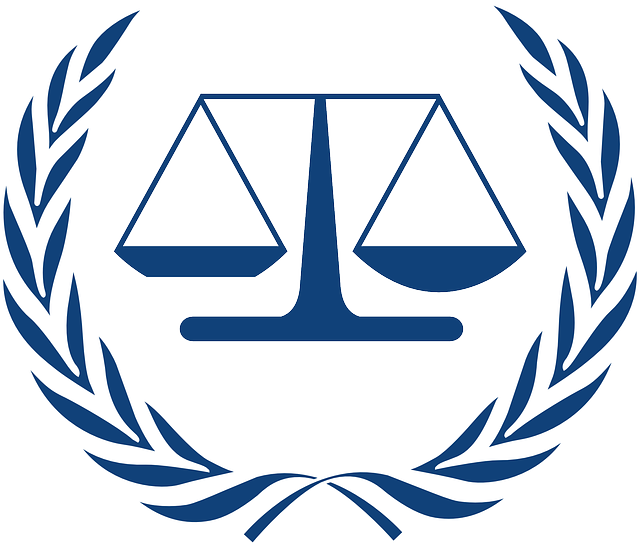Lawyers are essential in mergers and acquisitions (M&A), providing expert legal guidance throughout the process. Their roles include ensuring due diligence by meticulously examining target companies' financials, legal agreements, and compliance with regulations like antitrust laws and securities regulations. They navigate complex disclosure mandates and tax considerations to protect all parties involved. During negotiations, lawyers advocate fiercely for their clients' interests while fostering a cooperative environment to achieve mutually beneficial outcomes. Post-transaction, they are adept at handling disputes arising from issues like misrepresentation or contract breaches by leveraging their knowledge of commercial law. In the courtroom, their expertise in interpreting statutes and case law helps minimize litigation risks and facilitates smoother integration after the deal. The legal framework, including instruments like the Hart-Scott-Rodino Antitrust Improvements Act and the Williams Act, is crucial for the integrity of M&A transactions. Lawyers ensure that these deals are executed transparently and in accordance with the law, upholding the interests of all involved and contributing to the long-term success and sustainability of business ventures.
Navigating the complex landscape of mergers and acquisitions (M&A) requires a robust understanding of legal frameworks and strategic planning. This comprehensive guide delves into the essential role of skilled lawyers in steering M&A transactions to success, illuminating the intricacies of courtroom processes that may follow, and outlining the myriad laws governing such activities. From due diligence and risk assessment to post-merger integration and ensuring compliance, this article provides a detailed overview of the critical legal steps involved in M&A. It also addresses the importance of safeguarding intellectual property rights, understanding employment law implications, and navigating antitrust concerns. With a focus on tax considerations, international challenges, and the role of financial advisors, this piece equips readers with the knowledge to approach M&A transactions with confidence and legal acumen. Real-world case studies underscore the practical application of these principles, ensuring a well-rounded understanding of the M&A process from start to finish.
- Navigating Legal Terrain: The Role of a Skilled Lawyer in Mergers and Acquisitions
- Understanding the Courtroom Process Post-Merger/Acquisition
- The Lawful Framework Governing Mergers and Acquisitions
- Strategic Due Diligence and Risk Assessment in M&A Transactions
Navigating Legal Terrain: The Role of a Skilled Lawyer in Mergers and Acquisitions

In the complex interplay of mergers and acquisitions, the expertise of a seasoned lawyer is indispensable. These legal professionals navigate the intricate web of laws that govern such transactions, ensuring due diligence and adherence to regulatory requirements. Their role extends beyond the courtroom, as they craft agreements and structures that align with their clients’ strategic goals. They meticulously scrutinize contracts, assess risks, and provide counsel on compliance with antitrust laws and securities regulations. Their guidance steers companies through the labyrinth of legal considerations, from disclosure requirements to tax implications, thereby safeguarding the interests of all parties involved in the deal.
The lawyer’s role is pivotal during the negotiation phase where they advocate for their client’s best interests while also fostering a collaborative environment conducive to reaching mutually beneficial agreements. Their proficiency in interpreting legal statutes and case law ensures that every transaction is executed with a clear understanding of its legal ramifications. This due diligence not only minimizes potential litigation risks but also paves the way for a smoother integration post-merger or acquisition, ultimately contributing to the long-term success of the business venture.
Understanding the Courtroom Process Post-Merger/Acquisition

When a merger or acquisition has been finalized, parties often find themselves navigating the complexities of legal implications that may lead to courtroom proceedings. Post-transaction disputes can arise from various issues such as misrepresentation, non-compliance with regulatory requirements, or breaches of contractual obligations. In such scenarios, retaining an experienced lawyer is paramount; they provide expert advice on how to proceed in the event of litigation. These legal professionals are adept at understanding the nuances of commercial law and can effectively represent clients in courtroom settings. They will guide you through the intricacies of the legal process, from pre-trial motions to the presentation of evidence, ensuring that your rights and interests are protected throughout the proceedings. The courtroom process post-merger/acquisition is a formal mechanism for resolving disputes and enforcing agreements, which underscores the critical role of law in maintaining order and fairness in business transactions. Understanding this process is essential for any company involved in mergers and acquisitions to prepare for potential legal challenges and to ensure a smoother transition post-transaction.
The Lawful Framework Governing Mergers and Acquisitions

Navigating the complex landscape of mergers and acquisitions (M&A) necessitates a deep understanding of the legal framework that governs such transactions. A cadre of seasoned lawyers, versed in corporate law, antitrust laws, and securities regulations, plays a pivotal role in this domain. These legal experts ensure compliance with the myriad statutes that dictate the process, including those that oversee the disclosure requirements, due diligence protocols, and shareholder approval mandates. In the United States, for instance, the Hart-Scott-Rodino Antitrust Improvements Act is a cornerstone for pre-merger notification, while the Williams Act governs tender offers and anti-takeover defenses. The courtroom’s role in M&A transactions is to arbitrate disputes, interpret laws when ambiguities arise, and enforce agreements, thereby upholding the integrity of commercial dealings within the legal system.
Strategic Due Diligence and Risk Assessment in M&A Transactions

In the realm of mergers and acquisitions, strategic due diligence serves as a critical step for parties looking to navigate the complexities of M&A transactions. Lawyers meticulously scrutinize the target company’s financial statements, legal commitments, and contractual obligations. This process, often conducted in the courtroom or through its documentation, is designed to uncover any potential liabilities or risks that could impact the value or feasibility of the deal. It is a comprehensive evaluation that involves analyzing the target’s operations, assets, and liabilities to ensure a thorough understanding of the business’s health and legal standing. This due diligence is not merely a formality but a pivotal component that can influence the structure of the transaction, the allocation of risks between parties, and ultimately, the success of the merger or acquisition.
Risk assessment in M&A transactions is an intricate process that goes beyond mere financial analysis. Lawyers delve into the target’s compliance with industry-specific regulations, environmental laws, and intellectual property rights. This due diligence extends to evaluating the target’s adherence to data protection laws, ensuring that customer information is handled lawfully and securely. The identification of any legal issues or potential areas of exposure allows the acquiring entity to make informed decisions and negotiate terms that protect their interests. This proactive approach to risk assessment within the legal framework is essential for a smooth transition post-merger or acquisition, minimizing the likelihood of future litigation and fostering long-term stability and growth for the newly combined entity.
In conclusion, navigating the complex landscape of mergers and acquisitions demands a robust understanding of the legal framework involved. A skilled lawyer plays a pivotal role in ensuring that all due diligence is conducted meticulously, risks are assessed accurately, and the transaction complies with the law. The courtroom process post-merger or acquisition can be daunting, but with the right legal representation, parties can maneuver this phase effectively. Understanding the intricate laws governing such transactions is crucial for a successful outcome. Thus, it is advisable for entities considering mergers or acquisitions to engage with experienced legal counsel who can provide comprehensive guidance throughout the process, safeguarding their interests and facilitating a smooth transition.
